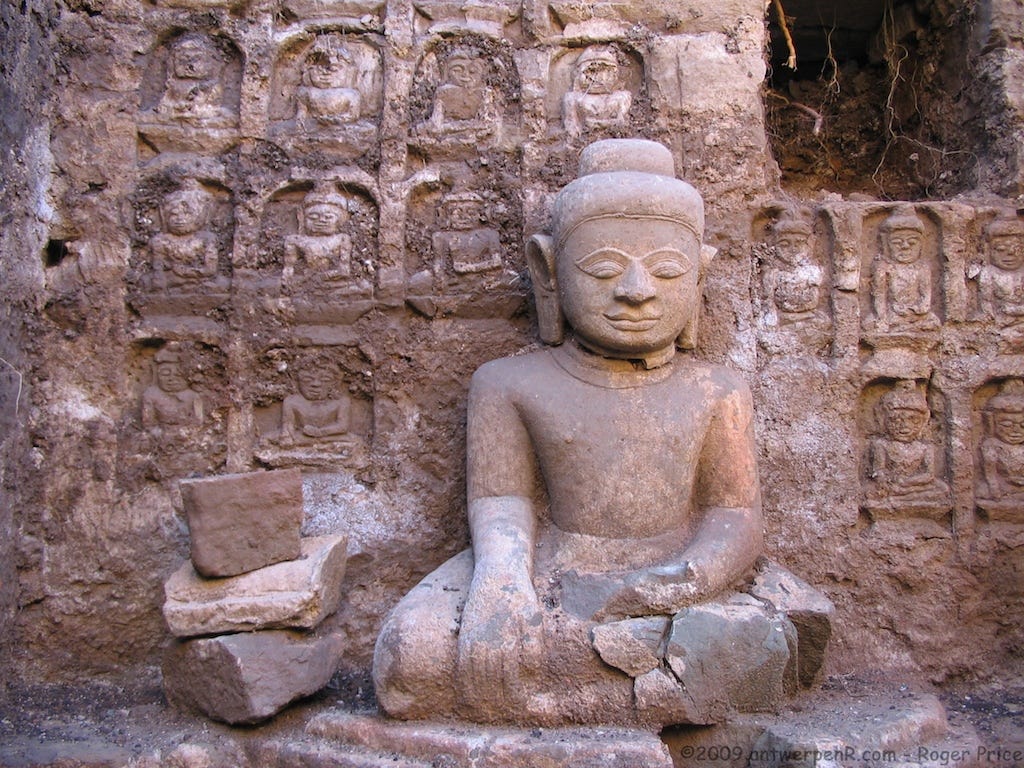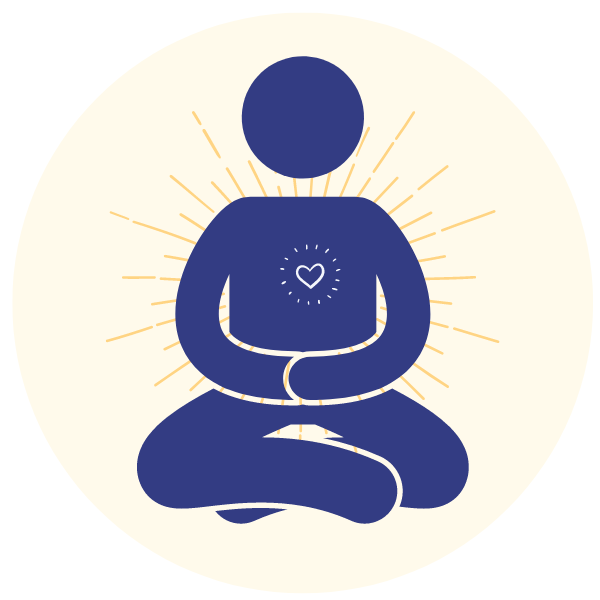“Never let the mind desert the body” is a meditation instruction from the late Thai Forest monk and meditation teacher, Ajahn Mun. When I heard it the other day, I almost laughed because nearly everything in our modern life is designed to do the exact opposite: to make us abandon our senses and exist only in our stories, fantasies, thoughts, plans, and fears. The problem with this is that when we lose connection with our senses, we lose connection with reality because it’s only through our physical sensations that we can verify what’s true and false. Without our bodies, our actions come from delusion, not wisdom. And that means we can’t appropriately respond to the needs of ourselves or others, learn to tolerate difficult feelings or pain, or simply notice and appreciate our own beautiful life.
I realized that every time I go for a run, I desert my body by listening to podcasts because I find it unpleasant and hard. So yesterday, I reluctantly decided to take Ajahn Mun’s advice and leave my headphones at home. I sighed because as soon as I ran for just a few feet, I wanted to quit—my body felt heavy, my chest was tight, and my mind was annoyed, restless, and bored. I brought my attention to my breath, but it was so unpleasant that I felt anxious, and I noticed I was searching for something to think or plan or remember. So I brought my attention to my legs and feet, really experiencing how it felt to move them, place them on the ground, and lift them up again for the next step, and this steadied my mind, and it stopped drifting around. The same happened when I concentrated on the sounds around me—birds, scooters, kids playing, dogs, airplanes, and my breath. I immediately felt more engaged, grounded, and embodied. When I finished, I realized that though it wasn’t the most pleasant, it was by far the most interesting run I’d had in a long time.
If you’re spending a lot of time on the internet and social media, consuming entertainment in the form of movies and television, and/or working or thinking about work constantly, I hope you’ll consider reconnecting your mind and your body. Just take ten minutes without your devices, sit down in a quiet place, and stop talking. Put one hand on your heart and the other on your belly and experience your breath. Notice if you feel annoyed or bored—that’s okay, just acknowledge it and return to your breath. You can include sounds too and see if you can continue like this, letting yourself breathe and hear and rest in the reality and truth of your embodied being.

Special Event
Next Weekend! On April 29th I’m leading a Half-Day Hybrid Retreat : Support for Healing Grief + Loss, in-person and online retreat at Tibet House in NYC! We’ll come together in a peaceful space to offer ourselves and each other our patience, friendship, and kindness. We’ll have periods of guided silent sitting and walking meditation, with time for discussion and questions too. You’ll learn to:
Develop concentration and focus
Meet difficult emotions with gentleness
Become a reliable support to yourself
Recognize the wisdom of your body
Cultivate clarity and make wise choices
Develop gratitude and appreciation for your precious human life and your loss
I hope you’ll plan to join us in NYC or on Zoom. It’s designed for all levels, so if you’re a beginning meditator, don’t worry, you can do it! If you have questions, email me!
To enable as many people as possible to attend this special event, Tibet House is generously offering a discount. Just use code heal30%off24 at this link.
Gladden Your Mind
Most Buddhist traditions include chanting as part of their rituals and practices. In the early Buddhist lineages, many of the chants are still recited in Pali, the language of the Buddha, and it’s very moving to me to remember that these teachings have been continuously chanted since the Buddha’s life. You can read and listen to these chants—done in Pali and in English—sung by the monastics at the Metta Forest Monastery in California, at this link.
Share Your Blessings
Sabbe sattā sukhitā hontu.
May all living beings be happy.
Sabbe sattā averā hontu.
May all living beings be free from animosity.
Sabbe sattā abyāpajjhā hontu.
May all living beings be free from oppression.
Sabbe sattā anīghā hontu.
May all living beings be free from trouble.
Sabbe sattā sukhī attānaṁ pariharantu.
May all living beings look after themselves with ease.
— From the Brahmavihara Paritta, in Pali and English, from A Chanting Guide, by The Dhammayut Order in the United States of America.
Rejoicing in your practice and good heart!
Metta+++,
Kim✨









Returning to the breath while running and finding anxiety - that definitely resonated with me. Sometimes focusing on the breath will bring up uncomfortable feelings rather than abolish them.
This was very timely to read as I’m reminded of my own social media use and to reconnect with my body in this moment. Thank you
Lovely reminder. Thank you! I think of the Katha Upanishad and its guidance through captivating imagery to know the body as the chariot pulled by the horses of our senses. We use the reins of our minds to direct them. We better learn how to use those reins wisely! And definitely not drop them!